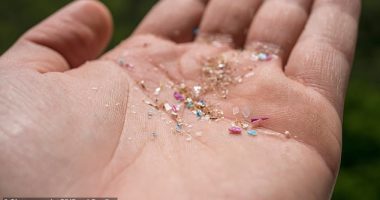A widely-used antimalarial drug could help relieve one of the leading causes of infertility in women, early stage lab results suggest.
Artemisinin, a traditional Chinese herbal therapy, has long been proven to swiftly reduce parasites in the blood of patients with malaria.
But a study on animals now suggests the treatment could also help alleviate polycystic ovary syndrome (PCOS).
Tests on mice and rats by researchers in China showed it could reduce the amount of the hormone, androgen, produced in the ovaries by targeting a crucial enzyme in androgen production.
Experts today labelled the discovery ‘promising’ but warned further research was vital to pinpoint the treatment’s long term effects.


Thought to affect around one in 10 women worldwide, PCOS has shot to prominence in recent years. Spice Girl turned fashion mogul Victoria Beckham famously opened up in the early 2000s about her struggle to conceive with PCOS
Thought to affect around one in 10 women worldwide, PCOS has shot to prominence in recent years.
Spice Girl turned fashion mogul Victoria Beckham famously opened up in the early 2000s about her struggle to conceive with PCOS.
In 2016, Star Wars actress Daisy Ridley also revealed the condition’s affects on her complexion made her ‘so self conscious’ that her sense of confidence was ‘in tatters.’
The exact cause of PCOS is unknown, but it often runs in families.
It is found in those who produce higher amounts of testosterone and androgen than average.
The condition causes cysts to develop on the ovaries, leading to wide ranging hormonal symptoms and weight gain.
The researchers, from Fudan University, split the four-week old female mice and rats into two groups.
One was injected with DHEA, a hormone produced by the body’s adrenal glands and to reflect PCOS over the course of two weeks.
Both groups were then treated with artemether (ATM), a type of artemisinin.
The scientists found the compound targeted CYP11A1, a crucial enzyme in androgen production.
It also enhanced LONP1, an enzyme that breaks down protein, suppressing androgen from being produced.
Writing in the journal, Science, the experts also said metabolic tests on the mice showed ATM had ‘no effect’ on body weight, fat mass, lean mass, or even glucose tolerance.
They added: ‘This discovery illuminates a previously unknown interaction between LONP1 and CYP11A1 that is enhanced by artemisinins.’


In 2016, Star Wars actress Daisy Ridley also revealed the condition’s affects on her complexion made her ‘so self conscious’ that her sense of confidence was ‘in tatters’
Elisabet Stener-Victorin, an expert in reproductive endocrinology at the Karolinska Institutet, who wasn’t involved in the research said: ‘Although further studies will be needed to fully understand the long-term effects and to optimize dosing strategies to maximize therapeutic outcomes, the discovery of artemisinins as effective remedies for PCOS nonetheless represents a promising new approach for the development of specific therapies that will potentially change the landscape of PCOS treatment.’
It comes as scientists have repeatedly warned resistance to artemisinin is rapidly spreading across the world.
Artemisinin causes damage to the proteins in the malaria parasite that kill the human cell.
But the mosquito-borne malaria parasite has developed a way to deal with the damage.
Source: Mail Online







